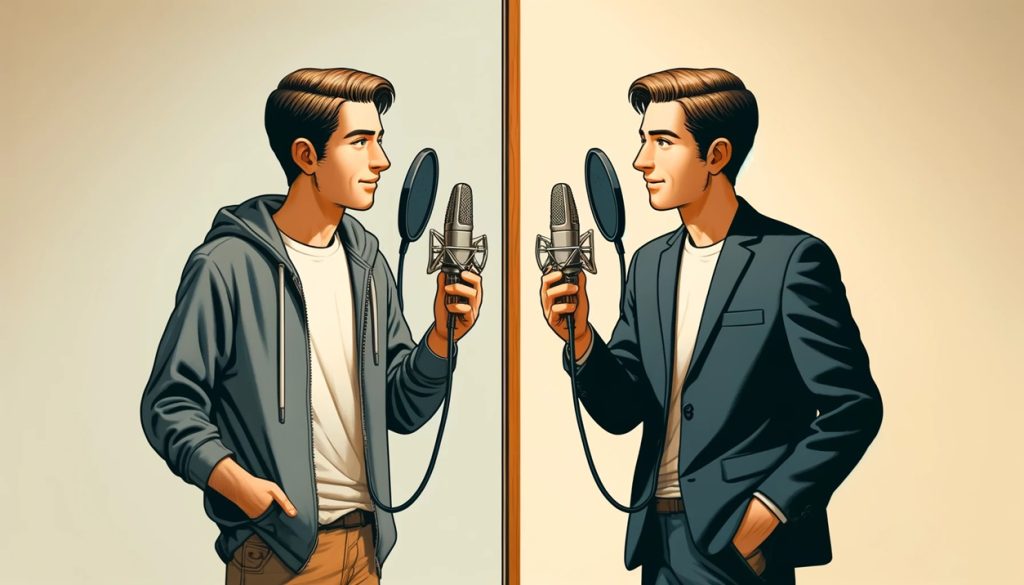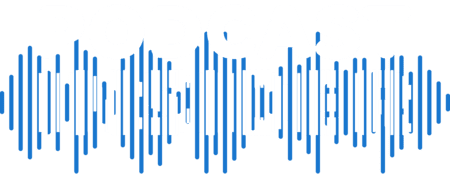 Podcasters are often divided into two camps: the hobbyists and the serious business moguls. For hobbyists, podcasting is the ultimate excuse to talk incessantly about their niche obsessions — like the history of pine-needle basket weaving or the intricacies of cheese-making — without being interrupted by eye rolls. They relish the freedom to record in their pajamas while sipping coffee and revel in the joy of having at least three listeners who aren’t related to them.
Podcasters are often divided into two camps: the hobbyists and the serious business moguls. For hobbyists, podcasting is the ultimate excuse to talk incessantly about their niche obsessions — like the history of pine-needle basket weaving or the intricacies of cheese-making — without being interrupted by eye rolls. They relish the freedom to record in their pajamas while sipping coffee and revel in the joy of having at least three listeners who aren’t related to them.
On the flip side, serious business podcasters are armed with marketing strategies, high-end microphones, and dreams of sponsorship deals that rival Super Bowl ads. They meticulously plan each episode, aiming for viral content while obsessively tracking metrics. Whether it’s a passion project or a path to fame, every podcaster finds their groove — often while editing out those pesky pauses and ‘ums’ at 2 a.m.
Podcasting has become the go-to medium for sharing stories, ideas and expertise. For folks considering starting a podcast, whether for fun or profit, understanding the nuances of hobby podcasting and professional podcasting is an important starting point.
Podcasting as a Hobby
Launching a podcast as a hobby is an excellent way to dive into audio content without significant pressure. Here are some key aspects to consider when podcasting for fun:
- Passion-Driven Content: Hobbyist podcasters typically choose topics they are passionate about. This can range from discussing favorite books or movies to exploring niche interests like bird watching or vintage car restoration. The primary goal is to share enthusiasm with like-minded listeners.
- Flexibility: As a hobbyist, you have the freedom to create and publish content at your own pace. There’s no strict schedule to adhere to, allowing you to balance podcasting with other commitments.
- Minimal Investment: Starting a hobby podcast requires minimal financial investment. Basic equipment, such as a good-quality microphone and headphones, along with free or low-cost editing software, is sufficient to get started.
- Personal Growth: Podcasting as a hobby can help develop new skills, such as public speaking, content creation, and audio editing. It’s a great way to learn and grow without the pressure of financial success.
Podcasting as a Business
Turning a podcast into a business requires a more strategic approach. Here are key considerations for making podcasting your job:
- Target Audience and Niche: Successful business podcasts often target a specific audience or niche. Identifying a gap in the market or addressing underserved topics can help attract a dedicated listener base.
- Consistent Content Production: To build a loyal audience, consistency is crucial. This means setting a regular release schedule and sticking to it. Whether it’s daily, weekly, bi-weekly, or monthly, listeners should know when to expect new episodes.
- Quality and Professionalism: High-quality audio, engaging content, and professional presentation are essential for attracting and retaining listeners. Investing in better equipment, professional editing, and even a dedicated recording space can make a significant difference.
- Monetization Strategies: There are several ways to monetize a podcast, including sponsorships, advertising, merchandise sales, and premium content. Blubrry Podcasting offers programmatic advertising, Dynamic advertising, Premium Podcasting, Value4Value and more monetizing options through its platform. Building relationships with brands and understanding different revenue streams is key to financial success.
- Marketing and Promotion: Business podcasters need to actively promote their shows to grow their audience. This involves leveraging social media, guest appearances on other podcasts, collaborations, and possibly even paid advertising.
Transitioning from Hobby to Business
For hobbyists looking to turn their passion into a profession, here are some steps to consider:
- Evaluate Your Content: Assess whether your current podcast content can appeal to a broader audience or if it needs refinement to become more marketable.
- Plan and Strategize: Develop a business plan that includes your goals, target audience, monetization strategies, and marketing plan. Setting clear, achievable objectives will guide your transition.
- Invest in Quality: Upgrade your equipment and software to ensure professional-grade production. Consider taking courses or hiring professionals for tasks like editing and marketing.
- Build a Brand: Create a strong, recognizable brand for your podcast. This includes a professional logo, consistent branding across platforms, possibly a catchphrase and a compelling story that resonates with your audience.
- Network and Collaborate: Engage with other podcasters, industry professionals, and potential sponsors. Networking can open doors to opportunities that help grow your podcast into a business.
Podcasting for Business Success Statistics
 We asked ChatGPT about the potential for earning the big bucks via podcasting and this is what it said:
We asked ChatGPT about the potential for earning the big bucks via podcasting and this is what it said:
The earnings of podcasters can vary significantly based on factors such as audience size, niche, and monetization strategies. On average, podcasters with around 10,000 downloads per episode can expect to make between $500 to $900 per episode from sponsorships and ads (FinanceBuzz) (Captivate Unlimited). For instance, with a CPM (cost per mille) rate of $18 to $50, podcasters can earn between $180 and $500 per episode if they have 10,000 downloads (Wired Clip).
However, only a small percentage of podcasters achieve substantial earnings. According to various sources, top-tier podcasters such as Joe Rogan can earn up to $800,000 per episode, with overall annual earnings reaching millions (FinanceBuzz) (What To Become). On the other hand, many podcasters earn modest incomes, often supplementing their revenue through affiliate marketing, merchandise sales, and listener donations (Captivate Unlimited) (DemandSage).
The path to significant earnings in podcasting involves growing a dedicated and engaged audience, which can take time and consistent effort. Successful podcasters often combine multiple revenue streams, including advertising, subscriptions, premium content, and live events, to maximize their income.
Ultimately, while it’s possible to make podcasting a full-time job, it requires strategic planning, audience growth, and effective monetization methods to achieve substantial financial success.
Does that all sound right to you? We’d like to know whether you approach podcasting as a hobby, business or both! Let us know how you podcast by taking our poll.





